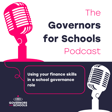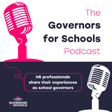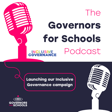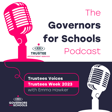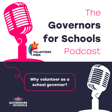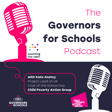
SEND and Safeguarding: Why your support matters on governing boards
Do you have expertise in safeguarding or Special Educational Needs and Disabilities (SEND)? Ever considered using it to support a school in your local area?
In this episode, we speak with Matt, a deputy head who volunteers as a link governor for safeguarding, and Louise - a link governor in safeguarding, SEND and wellbeing. They share their experiences of supporting children with SEND, the skills and perspectives they've developed as school governors, and the challenges they’ve faced.
Whether you're considering becoming a school governor or already involved, their stories offer valuable insights on why these roles are so vital in supporting the next generation.
Ready to find out more about the role of a school governor? Visit our website: https://bit.ly/GfSAboutTheRole.
Music by: Bensound.com/free-music-for-videos License code: 8P2EVFF3DFNJZLFU

